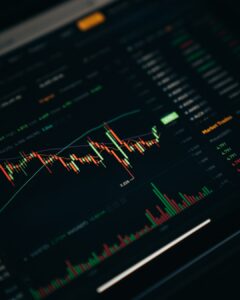Forex Broker Listings: Understanding the Different Types of Brokers
When it comes to trading in the forex market, one of the most important decisions you’ll have to make is choosing the right forex broker. With so many options out there, it can be overwhelming to decide which broker is the best fit for your trading style and goals. In this article, we will explore the different types of forex brokers to help you make an informed decision.
1. Market Maker Brokers:
Market maker brokers, also known as dealing desk brokers, are the most common type of forex broker. These brokers create a market for their clients by taking the other side of their trades. When you place a trade, the market maker broker will match your order with one of their own clients or take the opposite position themselves. This means that they are the counterparty to your trades.
Market maker brokers make money through spreads, which is the difference between the bid and ask price. They usually offer fixed spreads, meaning the spread remains constant regardless of market conditions. While market maker brokers provide liquidity and can offer lower trading costs, there is a potential conflict of interest as they have the ability to manipulate prices.
2. Electronic Communication Network (ECN) Brokers:
ECN brokers operate differently from market maker brokers. Instead of acting as the counterparty to your trades, they connect you directly to a network of liquidity providers, including other traders, banks, and financial institutions. ECN brokers simply act as intermediaries, matching your orders with the best available bid or ask price in the market.
ECN brokers make money by charging a commission on each trade, in addition to the spreads. The spreads offered by ECN brokers are usually variable, meaning they can widen or narrow depending on market conditions. While ECN brokers provide direct access to the interbank market and offer transparency, the trading costs can be higher compared to market maker brokers.
3. No Dealing Desk (NDD) Brokers:
No Dealing Desk brokers combine the features of both market maker and ECN brokers. They do not have a dealing desk and instead route your orders directly to liquidity providers, similar to ECN brokers. However, unlike ECN brokers, NDD brokers do not charge a commission on each trade. Instead, they make money through the spread.
NDD brokers can offer both fixed and variable spreads, depending on the liquidity providers they work with. They provide fast execution and transparency, making them a popular choice among traders. However, it’s important to note that some NDD brokers may still have relationships with market maker brokers, which could lead to potential conflicts of interest.
4. Straight Through Processing (STP) Brokers:
STP brokers are similar to NDD brokers as they also route your orders directly to liquidity providers. However, unlike NDD brokers, STP brokers do not offer fixed spreads. Instead, they offer variable spreads that reflect the actual market conditions. STP brokers can be a good choice for traders who prefer tight spreads and fast execution.
One important thing to consider when choosing an STP broker is the quality of their liquidity providers. Some STP brokers may have fewer liquidity providers, which can result in less competitive spreads and slower execution.
In conclusion, understanding the different types of forex brokers is essential for selecting the right one for your trading needs. Market maker brokers provide liquidity and fixed spreads, while ECN brokers offer direct access to the interbank market and variable spreads. NDD brokers combine features from both market makers and ECN brokers, providing transparency and fast execution. STP brokers offer variable spreads and fast execution, making them a popular choice for many traders.
Ultimately, the choice of a forex broker should be based on your trading style, preferences, and goals. It’s important to carefully research and compare different brokers, considering factors such as trading costs, regulation, customer support, and trading platforms. By understanding the different types of brokers and their pros and cons, you can make an informed decision and enhance your trading experience in the forex market.





